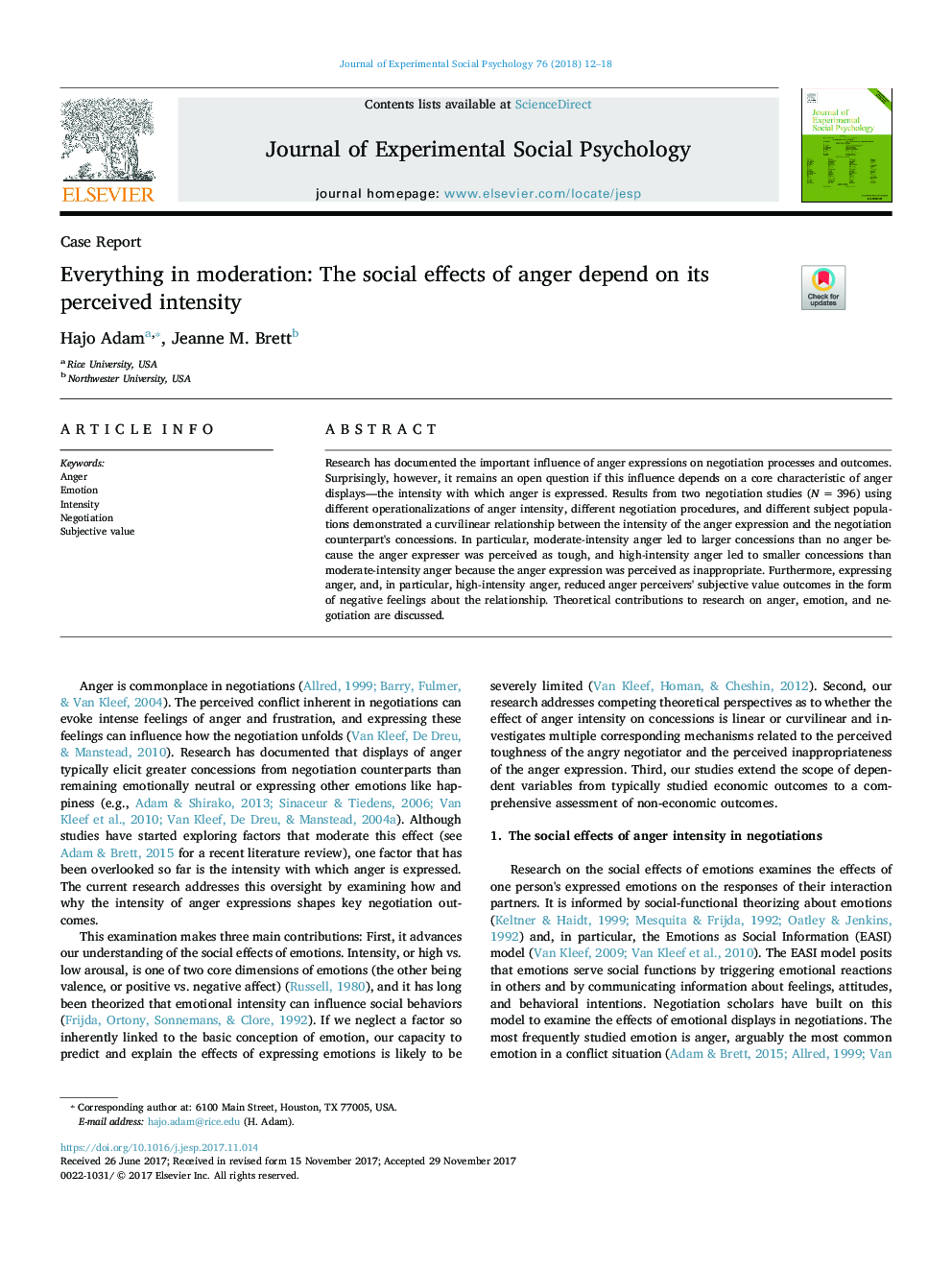| Article ID | Journal | Published Year | Pages | File Type |
|---|---|---|---|---|
| 7324207 | Journal of Experimental Social Psychology | 2018 | 7 Pages |
Abstract
Research has documented the important influence of anger expressions on negotiation processes and outcomes. Surprisingly, however, it remains an open question if this influence depends on a core characteristic of anger displays-the intensity with which anger is expressed. Results from two negotiation studies (NÂ =Â 396) using different operationalizations of anger intensity, different negotiation procedures, and different subject populations demonstrated a curvilinear relationship between the intensity of the anger expression and the negotiation counterpart's concessions. In particular, moderate-intensity anger led to larger concessions than no anger because the anger expresser was perceived as tough, and high-intensity anger led to smaller concessions than moderate-intensity anger because the anger expression was perceived as inappropriate. Furthermore, expressing anger, and, in particular, high-intensity anger, reduced anger perceivers' subjective value outcomes in the form of negative feelings about the relationship. Theoretical contributions to research on anger, emotion, and negotiation are discussed.
Related Topics
Life Sciences
Neuroscience
Behavioral Neuroscience
Authors
Hajo Adam, Jeanne M. Brett,
